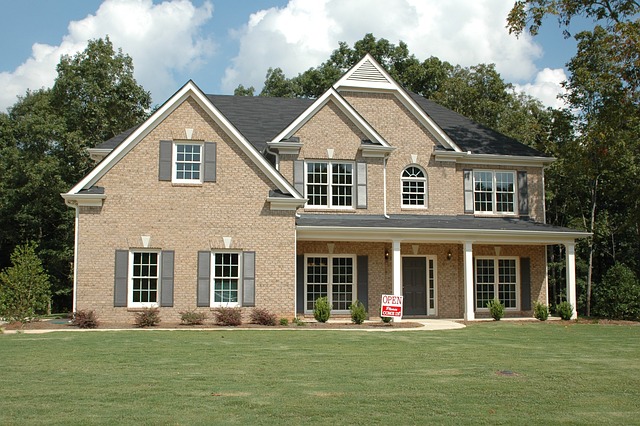2023 saw a significant uptick in interest for dual-key Executive Condominiums (ECs) in Singapore as a strategic investment, driven by their versatile living options suitable for multi-generational families and investors. These ECs offer two interconnected units, allowing for individual leasing or combined use, and have shown strong capital appreciation rates, often outperforming traditional condominiums. The dual-key design is favored due to its potential for rental yields, resilience in various economic conditions, and government support as a middle-income housing option. Investors should consider the deferred enforcement of Market Readiness Provisions, eligibility criteria, and long-term value appreciation when evaluating these properties. Additionally, dual key ECs must be assessed within the context of broader market trends, tenant demographics, and HDB guidelines to maximize rental yields and capital appreciation. For those considering investment in the EU's innovation ecosystem through Dual-Key Extraordinary Certificates (ECs), a deep understanding of the legal framework and regulatory standards is crucial for compliance and to navigate the complexities of EU-wide regulations and member state-specific criteria, with a focus on aligning with the EU's objectives for economic growth and sustainability. Investors in both Singapore and the EU should conduct thorough due diligence and seek expert advice to ensure their investments meet regulatory standards and optimize tax implications associated with these instruments.
Exploring the dynamic landscape of property investment in Singapore, the article delves into the burgeoning opportunities presented by Dual Key Executive Condominiums (ECs). This comprehensive guide unravels the potential of these dual-purpose units, offering insights into their market trends and performance analysis. Navigating the intricacies of the legal framework governing eligibility criteria is crucial for prospective investors, which this article addresses in detail. Strategic considerations for investing in Dual Key ECs are examined, highlighting the unique pros and cons that inform informed investment decisions. Conclusively, expert insights offer valuable strategies to maximize returns on your Dual Key EC investment, making it an essential read for investors interested in this vibrant market segment.
- Unveiling the Potential of Dual Key EC Investments in Singapore
- Navigating the Legal Framework of Dual Key EC Eligibility Criteria
- Market Trends and Performance Analysis of Dual Key Executive Condominiums (ECs)
- Strategic Considerations for Investing in Dual Key ECs: Pros and Cons
- Expert Insights: Maximizing Returns on Your Dual Key EC Investment
Unveiling the Potential of Dual Key EC Investments in Singapore

In the dynamic real estate market of Singapore, dual key EC (Executive Condominium) investments have emerged as a compelling opportunity for both first-time homeowners and property investors. These innovative properties are designed to offer flexibility and potential income streams. A dual key EC consists of two separate yet interconnected units under one roof—a smaller unit for the younger generation or investors, and a larger one for multi-generational families or investors looking to maximize their space and investment yields. This unique configuration aligns with the evolving lifestyle preferences in Singapore, where space efficiency and multigenerational living are becoming more prevalent. Investors eyeing dual key ECs can benefit from the dual rental yield prospects, as each unit can be leased separately, catering to different market segments. The strategic location of these properties often ensures accessibility to key amenities and transport networks, further enhancing their appeal. As such, dual key ECs present a lucrative investment opportunity that combines the benefits of real estate ownership with the versatility to adapt to various living and financial needs. With the Singapore government’s support for housing options that cater to diverse family structures, dual key ECs are poised to remain a significant investment option in the vibrant property landscape of Singapore.
Navigating the Legal Framework of Dual Key EC Eligibility Criteria

When exploring investment opportunities within the European Union’s (EU) innovation ecosystem, particularly in the realm of smart cities and sustainable energy, dual-key Extraordinary Certificates (EC) present a compelling avenue. These instruments are designed to facilitate both private and public investments that align with the EU’s strategic goals for growth and sustainability. Investors interested in dual-key ECs must navigate a complex legal framework that governs their eligibility and usage. This includes understanding the specific criteria set forth by the EU, which may vary by member state but generally emphasize projects that contribute to technological advancement and environmental objectives.
To qualify for dual-key EC investments, one must have a thorough grasp of the associated legal parameters, including the regulatory environment, tax implications, and eligibility conditions. These instruments often come with tailored terms that are subject to both EU-wide regulations and national laws. Prospective investors should consider the due diligence process necessary to confirm project alignment with the EC framework, as well as the potential for co-investment opportunities that these certificates can unlock. Engaging with legal experts who specialize in European investment instruments is crucial to ensure compliance and maximize the benefits of dual-key ECs within the EU’s dynamic market landscape.
Market Trends and Performance Analysis of Dual Key Executive Condominiums (ECs)

2023 has seen a notable uptick in interest for dual-key Executive Condominiums (ECs) as an investment opportunity, reflecting broader market trends that favor versatile living solutions. These ECs, with their flexible layout featuring two separate yet interconnected units—typically a smaller unit above a larger one—cater to the evolving needs of homeowners who seek both independence and proximity within the same residence. The dual-key structure is particularly attractive to multi-generational families, investors looking for rental potential, and those wishing to offer elderly parents or young adults their own private space while maintaining close family ties.
Performance analysis of dual key ECs has shown robust growth in capital appreciation, often outpacing traditional condominium units. This can be attributed to the unique combination of factors: their versatile living options, demand from investors for properties with rental yield potential, and the government’s ongoing support for ECs as a housing option for middle-income families. Investors have also noted the resilience of these properties during economic fluctuations, making dual key ECs a compelling investment in a market that values both practicality and profitability. The strategic location of these developments, often near key amenities and transportation nodes, further enhances their appeal and contributes to their consistent performance.
Strategic Considerations for Investing in Dual Key ECs: Pros and Cons

Investing in dual-key Executive Condominiums (ECs) presents a unique set of opportunities within Singapore’s property market, appealing to both investors and multi-generational families. Strategic considerations are paramount when evaluating such investments due to the dual-key feature that allows for flexible living arrangements. On one hand, this configuration enables owners to rent out one unit independently, offering a steady income stream. This aspect is particularly attractive in a market with high demand for affordable housing. On the other hand, owners have the flexibility to combine both units for extended family use, which can be a significant advantage in a society that often values close-knit family living.
The pros of investing in dual-key ECs include their affordability compared to private condominiums and their eligibility criteria that cater to younger couples who may not yet have significant financial resources. Additionally, the deferred enforcement of the Market Readiness Provisions (MRP) for ECs provides investors with a buffer period before they are compelled to sell their unit in the open market, potentially maximizing profit. However, investors should also be aware of the cons, such as the longer five-year minimum occupation period that EC owners must fulfill before they can sublet their entire unit or sell it on the open market. Moreover, the eligibility criteria for purchasing an EC are more restrictive than for private condominiums, with income ceilings and Citizenship requirements that potential investors must meet. A prudent investment strategy in dual-key ECs requires a thorough understanding of the property’s potential rental yield, market trends, and the long-term value appreciation, as well as a careful consideration of one’s financial commitments and investment horizon.
Expert Insights: Maximizing Returns on Your Dual Key EC Investment

In the realm of EC (Executive Condominium) investments in Singapore, dual key EC units have emerged as a compelling option for investors seeking to maximize their returns. These units are designed with two distinct keys, allowing separate access to each unit, which can be owned and occupied independently. This feature caters to multi-generational families or investors who wish to leverage the property for both living and rental purposes. According to industry experts, the dual key EC structure not only offers flexibility in occupation but also presents a unique investment proposition. By capitalizing on the demand from both upgrading families and singles looking for smaller, more affordable homes, investors can enhance their potential rental yields and long-term capital appreciation. It’s a strategic investment approach that requires a nuanced understanding of the market dynamics, including the timing of the market cycle, the specific needs of the target tenant demographic, and the maintenance of the property to meet the standards set by the Housing & Development Board (HDB).
Investors are advised to consider the long-term trends in population growth, family structures, and housing preferences when evaluating dual key EC opportunities. The strategic positioning of these units within mature or developing estates, coupled with proximity to essential amenities and transportation nodes, further enhances their appeal. Expert insights suggest that a well-researched investment strategy, tailored to the evolving landscape of Singapore’s property market, is key to unlocking the full potential of dual key EC investments. By staying informed on policy changes, market sentiment, and demographic shifts, investors can navigate this niche segment with confidence and position themselves for favorable returns on their EC investment endeavors.
In conclusion, the dual key Executive Condominium (EC) model in Singapore presents a unique and potentially lucrative investment opportunity. With its innovative design catering to multigenerational families, the dual key EC has carved out a niche in the property market, offering both capital appreciation and rental yield prospects. Prospective investors must navigate the legal criteria and understand the market dynamics, as highlighted throughout this article. The performance analysis underscores the viability of dual key ECs as a sound investment, balancing the pros of diversified income streams with the cons such as eligibility restrictions and market fluctuations. By heeding the expert insights provided, investors can strategically position themselves to maximize returns from their dual key EC investments. For those considering this path, it is clear that thorough research and a well-considered approach are key to tapping into the potential of these properties in Singapore’s vibrant real estate landscape.
